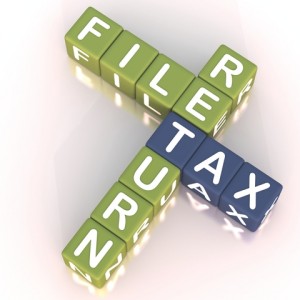 Now that the new year is well and truly under way, the time has come to look ahead to the self assessment tax return deadline of 31 January 2014 to ensure you file your 2012/13 return correctly, and help get the new year off to a great start.
Now that the new year is well and truly under way, the time has come to look ahead to the self assessment tax return deadline of 31 January 2014 to ensure you file your 2012/13 return correctly, and help get the new year off to a great start.
Whether this is the first year you’re submitting a self assessment tax return, or you’ve been submitting them for as long as you can remember, chances are there are numerous areas in your return in which you can save that little bit extra, and ultimately maximise your tax savings.
How to Maximise Your Tax Savings
Items to remember (and commonly forgotten) that can help you to maximise your savings are:
- Include all relevant employee benefits: remember to include all your employment benefits on your tax return. These may include company cars and private medical cover or even gym membership – these are all classified as taxable benefits and are often forgotten when completing a return.
- Your wear and tear allowance on rental income: If you receive rental income for furnished lettings you could be leaving a significant amount of money on the table by not claiming your 10% wear and tear allowance; an allowance which will reduce your taxable rent by 10%.
- Capital losses claims: When you claim capital losses you’ll be able to carry them forward, reducing your capital gains tax in upcoming tax years.
- Carrying back trading losses: Rather than carrying your trading losses forward, HMRC also allows you to offset your losses on trading by carrying them back or offsetting them against other income in the year. This can be complicated to assess and if this applies to your business, it is best to seek professional advice to ensure you offset the losses in the most tax efficient way.
- Gift Aid for charitable donations: It pays to keep a note of the charitable donations you make over any given tax period, especially as a higher rate tax payer, as these can be included on your tax return and result in a tax refund.
Late Filing Penalties
Filing your self-assessment tax return late is nothing more than a waste of your hard-earned money, especially if you’re a small business owner where the penalties for late filing may well take a fair chunk out of your earnings, entirely unnecessary.
If you miss the tax return deadline you’re going to end up paying more in penalties the longer you leave it. The current (2012-2013 tax year) late filing penalties, all of which apply to returns submitted after midnight on 31 January 2014, are as follows:
- If you’re one day late: You’ll automatically be hit with a £100 penalty even if you have no tax to pay or have already paid the tax you owe.
- If you’re three months late: You’ll have to pay £10 for each day following, up to a maximum of ninety days (£900). This is applied on top of the £100 penalty above.
- If you’re six months late: You’ll have to pay either £300 or 5% of the tax you owe, whichever is the larger figure. This is applied on top of both penalties above.
- If you’re twelve months late: You’ll have to pay another £300 or 5% of the tax you owe – whichever is the larger figure. In the words of HMRC, “In serious cases you may be asked to pay up to 100% of the tax due instead. In some cases the penalties can be even higher than this.” This is applied on top of all three penalties above.
Filing Your Tax Return
Using an accountant will take away from the stress of filing tax returns and leave you to concentrate on the running your business. Not only should penalties and interest be avoided, when you speak with professionals such as ourselves, we’ll also be able to help you to maximise your tax savings.
Contact us today on 020 8780 2349 or get in touch with us via our contact page to arrange a complimentary, no obligation meeting.
This blog is a general summary. It should not replace professional advice tailored to your specific circumstance.
